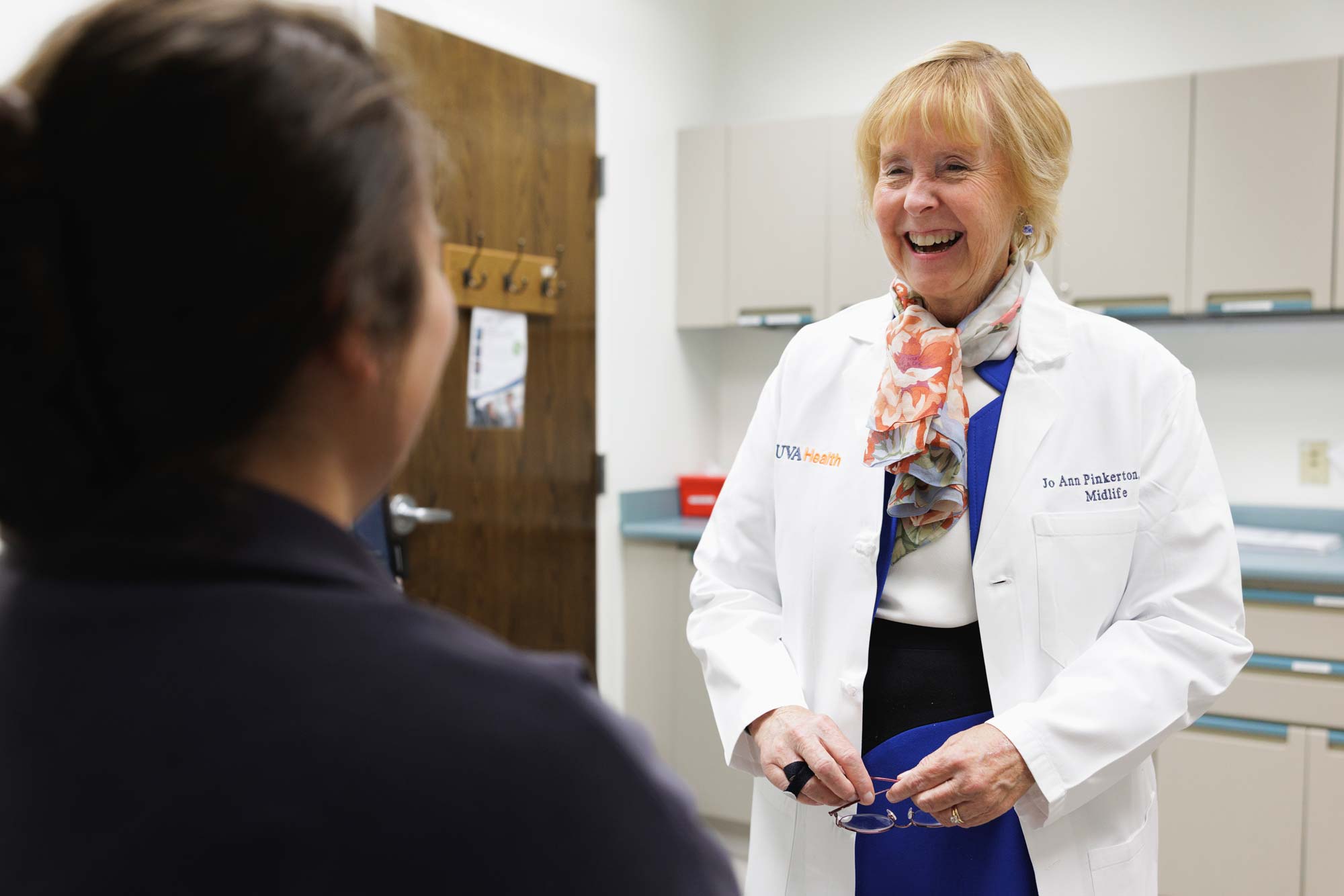“Please stop harming women.”
Nationally known University of Virginia obstetrics and gynecology professor Dr. JoAnn Pinkerton spoke those words in July, testifying to a special panel convened by Food and Drug Administration Commissioner Dr. Martin Makary.
He’d created the group of 12 preeminent experts for advice regarding the risks and benefits of menopause hormone therapy, with particular attention to breast cancer, uterine cancer and cardiovascular risks.
En masse, the panel – composed mostly of women – urged the FDA to remove or revise the warnings on low-dose vaginal estrogen treatment, a “local” treatment prescribed for vaginal and urinary symptoms.

On top of her research and advocacy, Pinkerton sees patients in the clinic four days a week. (Photo by Latham Goumas, University Communications)
Pinkerton spoke plainly. “I am begging, we are all begging the FDA, please remove the black box,” she said, specifically referring to a request to remove the warning on local vaginal estrogen therapies used to treat genitourinary syndrome of menopause. “The boxed warning is not supported by science. It overstates risk.”
The stated risks – cancer and cardiovascular problems – have been listed on all medications with the word “estrogen” for 22 years, the result of a 2002 study that has since been disputed, both for newer types of therapies and for therapies used locally for vaginal symptoms.
Pinkerton told the FDA panel the warnings have long frightened women away from taking advantage of treatments proven to help with serious vaginal and bladder symptoms such as painful sex and recurrent urinary tract infections that can lead to blood infections. She also addressed the safety of systemic hormone therapy for relief of menopausal symptoms, including hot flashes, night sweats, anxiety, depression, insomnia and memory problems, when given to women who are closer to menopause, under age 60 or within 10 years of menopause.











